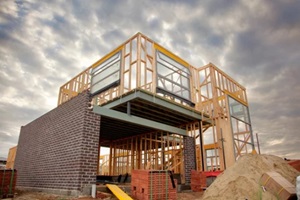 Virginia maintains its own rules and regulations governing the construction of residential structures. Unlike many other states, the contractor’s team size and project scope will determine minimum insurance requirements, which can make securing the proper coverage a challenge. Thus, working with an industry expert to ensure residential construction is essential in the project timeline.
Virginia maintains its own rules and regulations governing the construction of residential structures. Unlike many other states, the contractor’s team size and project scope will determine minimum insurance requirements, which can make securing the proper coverage a challenge. Thus, working with an industry expert to ensure residential construction is essential in the project timeline.
Here is an overview of Virginia’s liability insurance requirements for residential construction, including when such insurance is necessary, how much coverage is sufficient, and what other types of protection are important as part of a balanced and compliant insurance plan.
Remember—even if insurance is not strictly required, protecting your company from the potential financial repercussions of accidents or acts of God at the job site is highly recommended.
Is Liability Insurance Mandatory in Virginia?
As a strict rule, general liability insurance is not always required for contractors in Virginia. However, this can vary based on location, project scope, and team size. Generally, carrying a liability policy of at least $1,000,000 in protection is wise to ensure the contractor is not held financially responsible for accidents, theft, and other mishaps during residential construction.
Additionally, while the state itself does not always require general liability insurance, many permits that are mandatory for construction will require that the contractor be able to show proof of coverage. Thus, general liability insurance is required to complete a residential construction project, even if the state does not require it.
Choosing General Liability Coverage
The correct amount of coverage under general liability will depend on multiple factors. Virginia’s Department of Professional and Occupational Regulation classifies and licenses contractors depending on project types.
Class A contractor licenses permit work on projects valued at more than $120,000, whereas Class C licensing only grants access to projects between $1,000 and $10,000.
Naturally, the general liability coverage ideal for these two contractors will differ; in every case, the insurance should be valued for a minimum of the anticipated replacement value of the structure. However, most contractors elect to pursue additional coverage or add an umbrella policy to expand their general liability protections.
Other Required Protections
While general liability insurance protections are not a legal mandate in some situations, other coverages are. For instance, the state of Virginia requires that all contractors who employ at least two individuals, whether full-time or part-time, carry workers’ compensation insurance as part of their package.
Permits specific to the work being conducted may have their requirements, such as a mandate for builders’ risk insurance or commercial auto coverage. Both of these policies are a wise investment for residential construction contractors.
 Builder’s risk insurance differs from general liability protection. In comparison, general liability can protect a contractor from damage caused to others, or while on a third-party site, builder’s risk insurance covers damage at the construction site.
Builder’s risk insurance differs from general liability protection. In comparison, general liability can protect a contractor from damage caused to others, or while on a third-party site, builder’s risk insurance covers damage at the construction site.
This is an important distinction, and failure to carry coverage for both potentialities can expose a contractor to financial liability if someone is harmed or an accident occurs during construction. Furthermore, some companies will need commercial auto coverage.
This will depend on whether the contractor operates company vehicles or personal vehicles. Many jurisdictions and permitting authorities will also require that the contractor maintain a surety bond depending on the size of the project. Short-term contracts or those of a low value may not necessitate a surety bond.
Because the insurance requirements and recommendations for construction in Virginia depend so heavily on contextual and often client-specific information, contractors must work with an insurance team they can trust.
A local insurer remains aware of the regulations and laws that impact their area and can advise contractors on how best to maximize their protections and compliance without spending more money than necessary on coverage they will not likely need.
Stay in Compliance With Residential Construction Insurance from Burton & Company
Virginia’s liability insurance requirements may seem complex if you are a contractor focusing on residential construction. The experts at Burton & Company can help you navigate this area of your business so that you can approach jobs confidently, knowing that you are adequately protected from on-site risks and the potential legal issues of insufficient coverage.
Contact Burton & Company to explore your liability insurance options and create a customized mixture of protection that suits your business.

